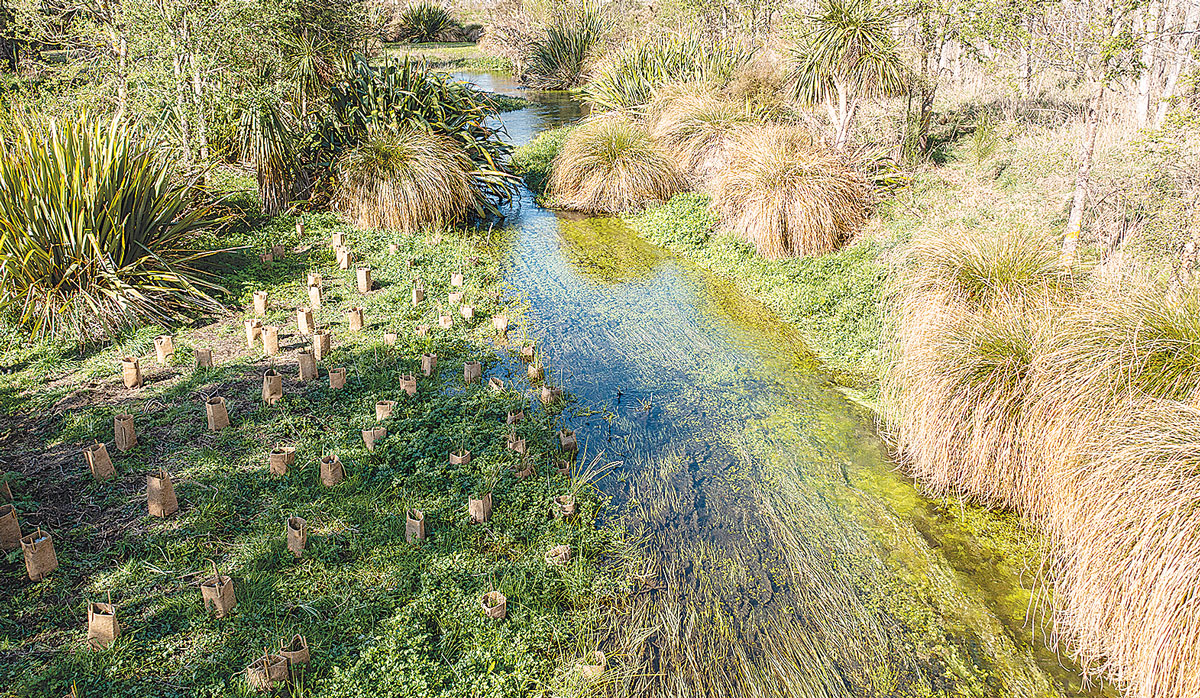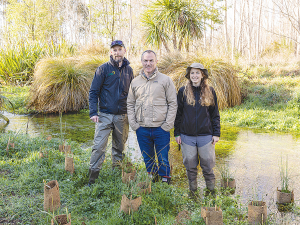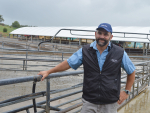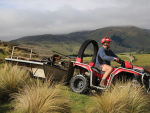Rare Canterbury mudfish and tadpole shrimp have been discovered at an environmental restoration site at Bennetts Stream in North Canterbury which is part of a biodiversity initiative being carried out by Waimakariri Irrigation Limited (WIL).
The Bennetts Stream restoration project began five years ago as part of a wider biodiversity project focused on improving sites of ecological interest across the irrigation scheme’s 44,000-hectare command area.
WIL biodiversity project lead Dan Cameron says the visual identification of 10 threatened Canterbury mudfish at Bennetts Stream in January followed by two tadpole shrimp in September raises several interesting questions regarding the role these species play in the ecosystem and how this will shape the future of the restoration project.
“It was a huge surprise to find Canterbury mudfish at the site as there are no known records of this species north of the Waimakariri River, apart from at Coopers Creek near Oxford.
“Unfortunately, a couple of months after we found the mudfish the stream went dry, and water only started flowing through this ephemeral stream again this month. We didn’t find any mudfish when we did our recent trapping exercise, so we don’t know yet whether the mudfish we found in January are still here. We are not sure if they could be a remnant population or if they were translocated here through a natural process such as a flood.”
The recent discovery of rare tadpole shrimps at the restoration site has prompted Dan to consider further investigations to understand what other species could be living in Bennetts Stream and how their lifecycles interact with the unique nature of an ephemeral stream ecosystem.
Tadpole shrimps are classified as “living fossils” as they are an ancient species with the oldest fossil ever discovered dating back to the Upper Carboniferous period (approximately 300 million years ago). Found only in New Zealand and Australia, they are known as shield shrimps due to the shell type structure that wraps around their body.
Read More
Tadpole shrimp require a specific habitat which dries up and must remain dry for some time for their lifecycle to be completed. The eggs of the tadpole shrimp hatch once a waterway or pond is refilled with water. Dan says tadpole shrimp have been found in the Hawke’s Bay and in Canterbury.
“There have been limited numbers of tadpole shrimp recorded in Canterbury so the discovery of both tadpole shrimp and Canterbury mudfish means that we will need to broaden our knowledge about the role they play in this ecosystem.”
WIL board director and local farmer Tim Wells started working on the Bennetts Stream project in 2019 with a focus on the removal of gorse and blackberry and carrying out native planting. He explains that the impetus for the project was in response to Plan Change 7 (PC7).
“WIL created a solutions package in response to Plan Change 7 which focused on biodiversity restoration within the area covered by our irrigation scheme, along with Managed Aquifer Recharge (MAR) and Targeted Stream Augmentation (TSA). I identified this site as a good way for farmers and the irrigation cooperative to make a difference as the stream is surrounded by WIL shareholder properties. We want to be part of the solution to the water quality issues that we have here in Waimakariri.”
Tim says that the long-term goal is for WIL to create a recreational space which can be enjoyed by everyone.
West Eyreton School is involved in the project, along with Environment Canterbury and Waimakariri District Council. Dan says with a large, long-term ecological restoration project such as this one, it is vital to work together with other partners.
“Working with stakeholders strongly underpins the success of the project as when we work together, we share resources, effort and enthusiasm. A great example of this is West Eyreton School where students have been raising native seedlings in a greenhouse supplied by WIL and then planting their seedlings here at the site.
“As the next generation, they are working to improve biodiversity in their backyard and that sense of kaitiakitanga (guardianship) is really strong, so it creates a very positive connection between the students and this particular site.”
 |
|---|
|
WIL is carrying out a biodiversity restoration project at Bennetts Stream, a tributary of the Eyre River located near Oxford in North Canterbury.
|
The next step in the project is environmental DNA (eDNA) sampling which will help to confirm if Canterbury mudfish are present and provide a more detailed picture of the different types of species living in Bennetts Stream.
“We will take samples from the stream and analyse these to determine traces of DNA in the samples. We can then understand more about what is living in the stream from species of fish right down to small invertebrates, microorganisms and algae.
“This will help us to decide which actions to take next and will also help to determine a long-term plan for the site. Ultimately, we want to create a self-sustaining site with thriving indigenous biodiversity, but we want to spend more time understanding this ecosystem first.
“We need to determine how all of the different elements at this site impact each other so we can create a long-term plan to enhance and preserve this special space for future generations to enjoy.”


















